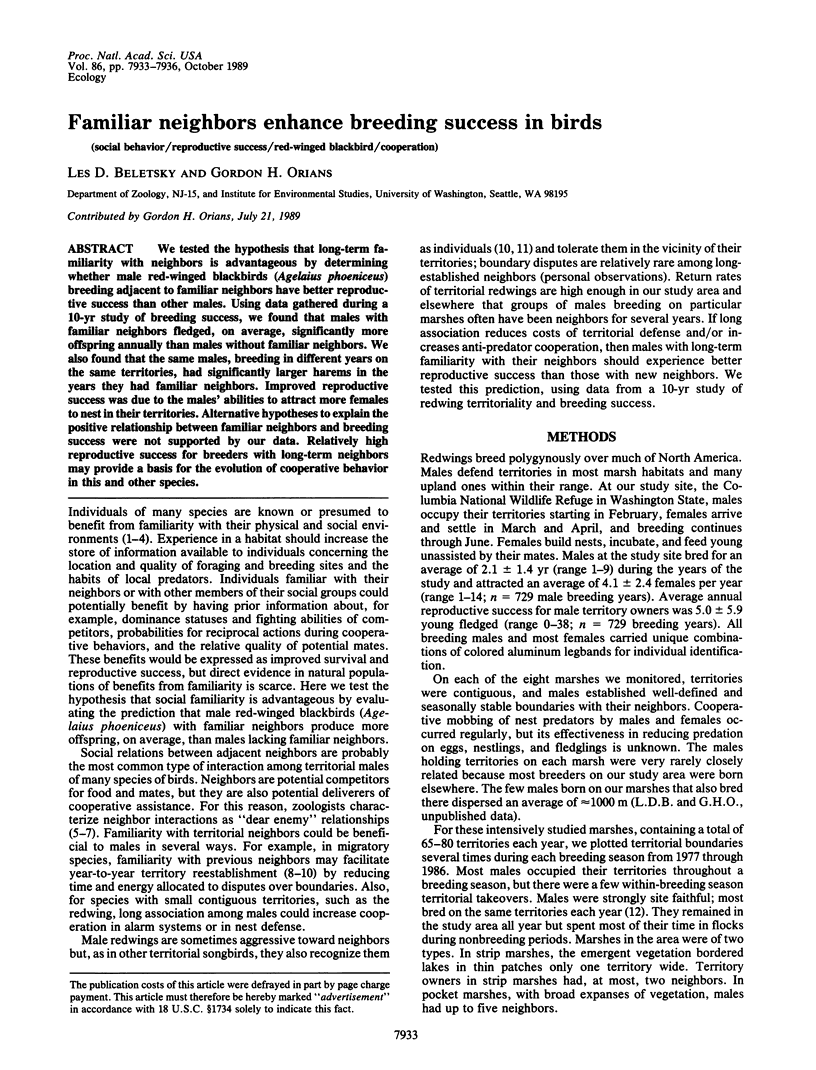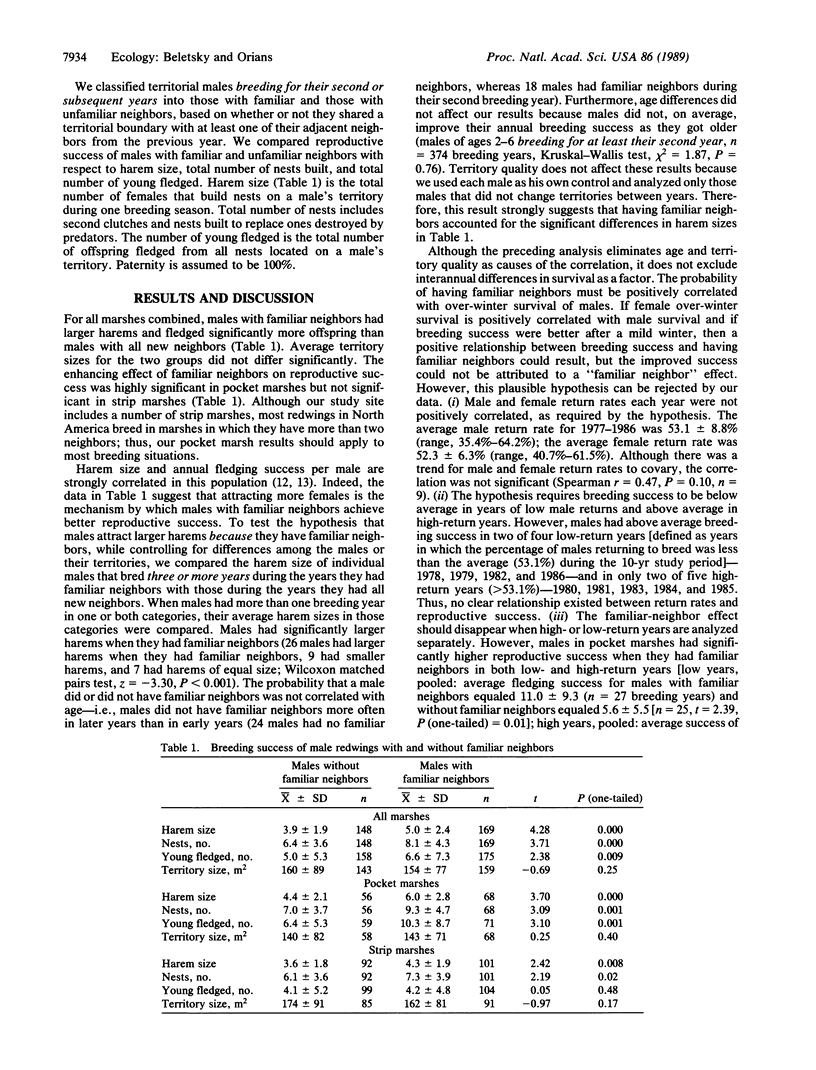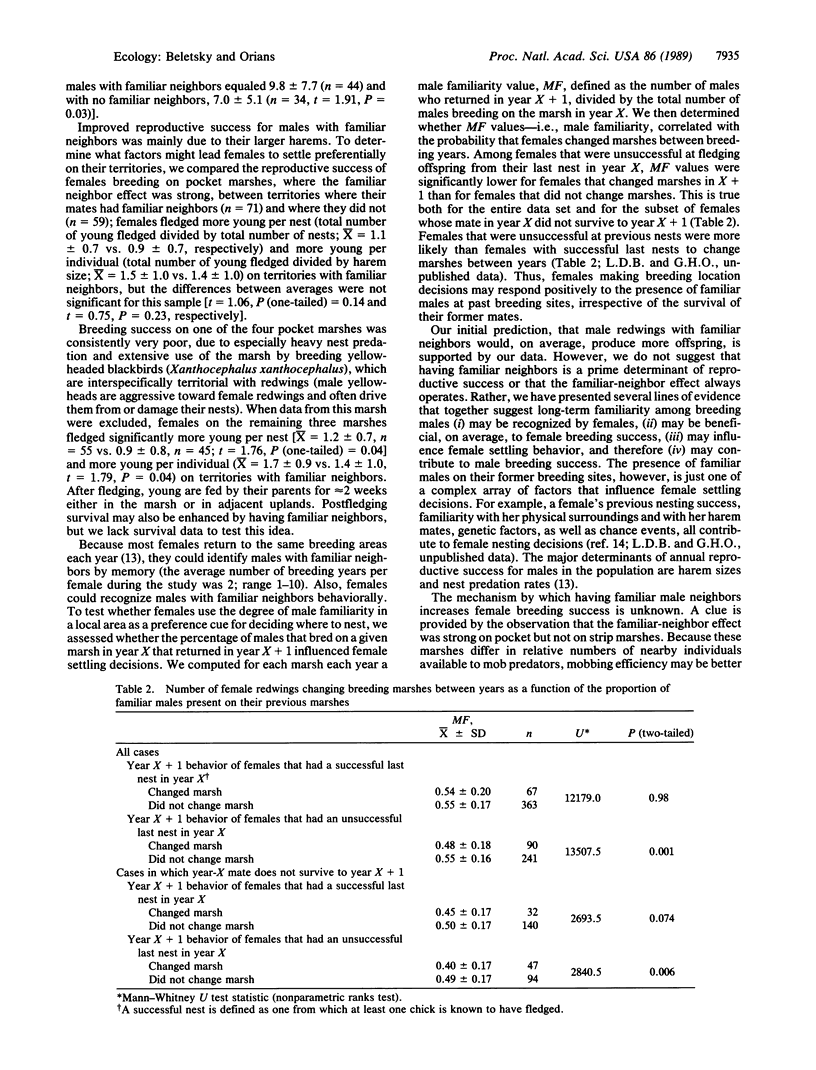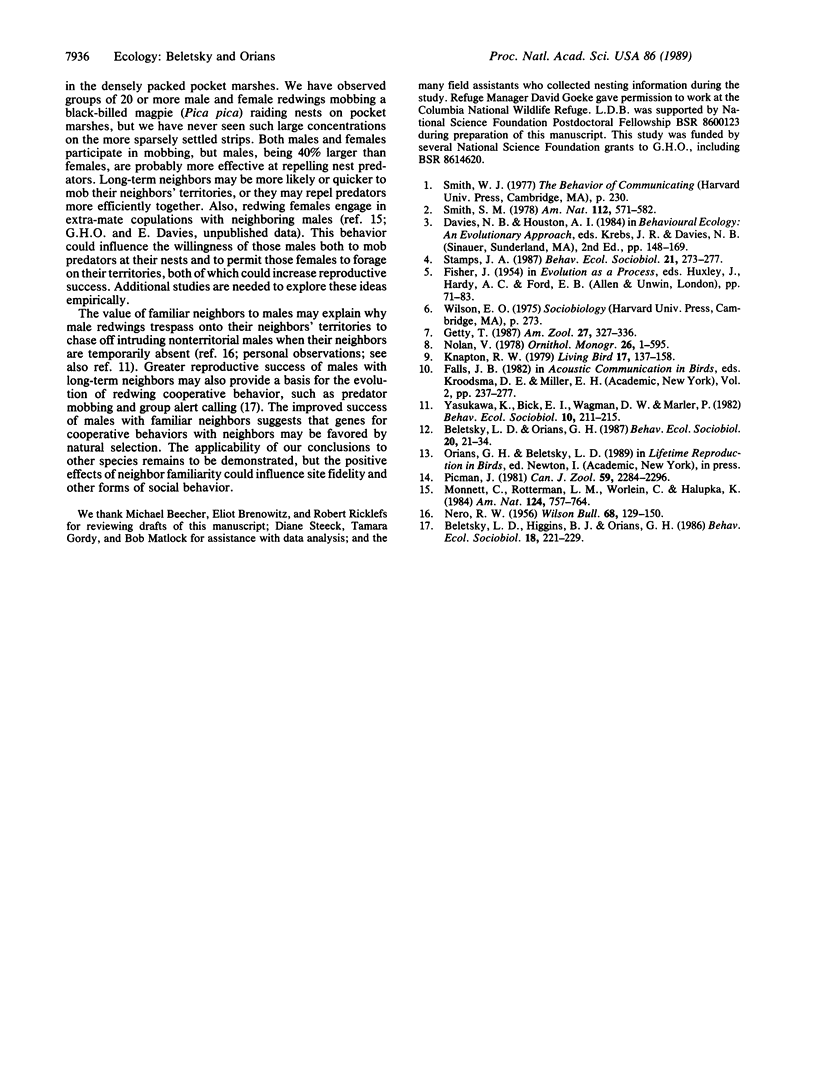Abstract
We tested the hypothesis that long-term familiarity with neighbors is advantageous by determining whether male red-winged blackbirds (Agelaius phoeniceus) breeding adjacent to familiar neighbors have better reproductive success than other males. Using data gathered during a 10-yr study of breeding success, we found that males with familiar neighbors fledged, on average, significantly more offspring annually than males without familiar neighbors. We also found that the same males, breeding in different years on the same territories, had significantly larger harems in the years they had familiar neighbors. Improved reproductive success was due to the males' abilities to attract more females to nest in their territories. Alternative hypotheses to explain the positive relationship between familiar neighbors and breeding success were not supported by our data. Relatively high reproductive success for breeders with long-term neighbors may provide a basis for the evolution of cooperative behavior in this and other species.
Full text
PDF





